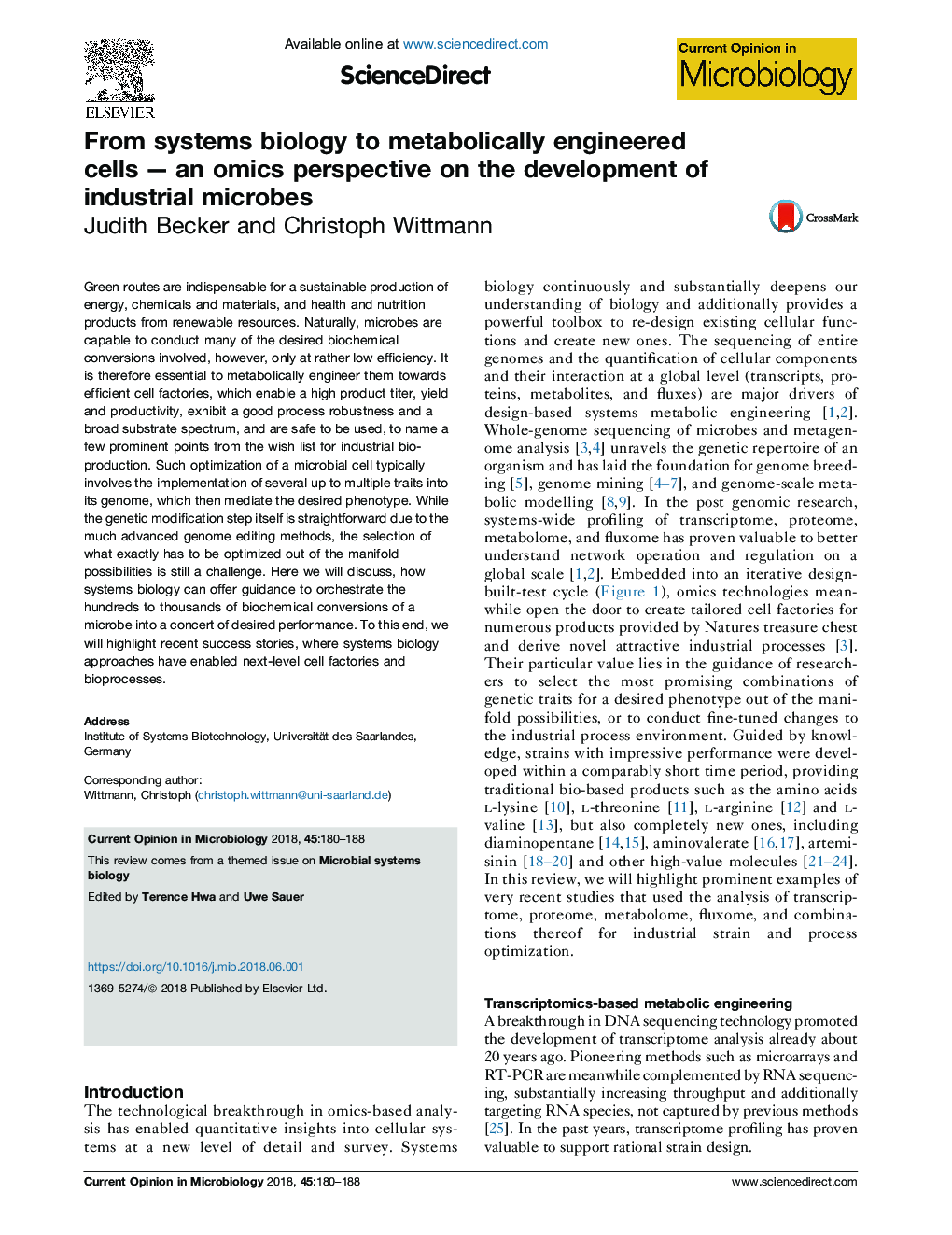| Article ID | Journal | Published Year | Pages | File Type |
|---|---|---|---|---|
| 10030114 | Current Opinion in Microbiology | 2018 | 9 Pages |
Abstract
Green routes are indispensable for a sustainable production of energy, chemicals and materials, and health and nutrition products from renewable resources. Naturally, microbes are capable to conduct many of the desired biochemical conversions involved, however, only at rather low efficiency. It is therefore essential to metabolically engineer them towards efficient cell factories, which enable a high product titer, yield and productivity, exhibit a good process robustness and a broad substrate spectrum, and are safe to be used, to name a few prominent points from the wish list for industrial bio-production. Such optimization of a microbial cell typically involves the implementation of several up to multiple traits into its genome, which then mediate the desired phenotype. While the genetic modification step itself is straightforward due to the much advanced genome editing methods, the selection of what exactly has to be optimized out of the manifold possibilities is still a challenge. Here we will discuss, how systems biology can offer guidance to orchestrate the hundreds to thousands of biochemical conversions of a microbe into a concert of desired performance. To this end, we will highlight recent success stories, where systems biology approaches have enabled next-level cell factories and bioprocesses.
Related Topics
Life Sciences
Immunology and Microbiology
Microbiology
Authors
Judith Becker, Christoph Wittmann,
